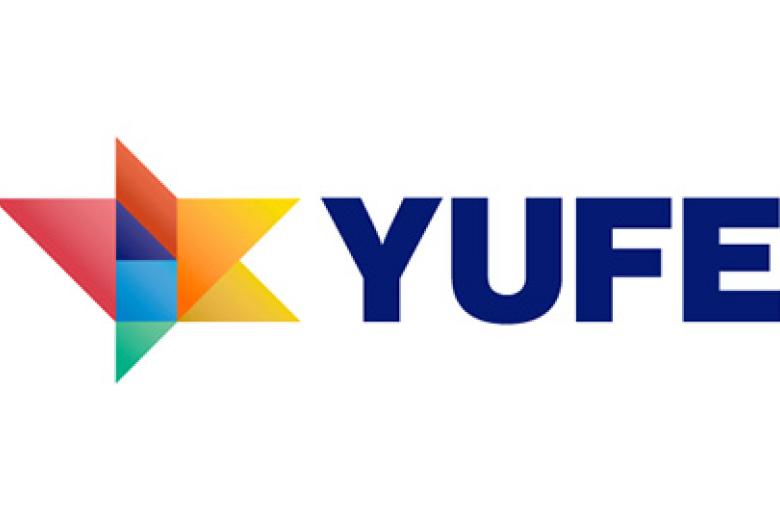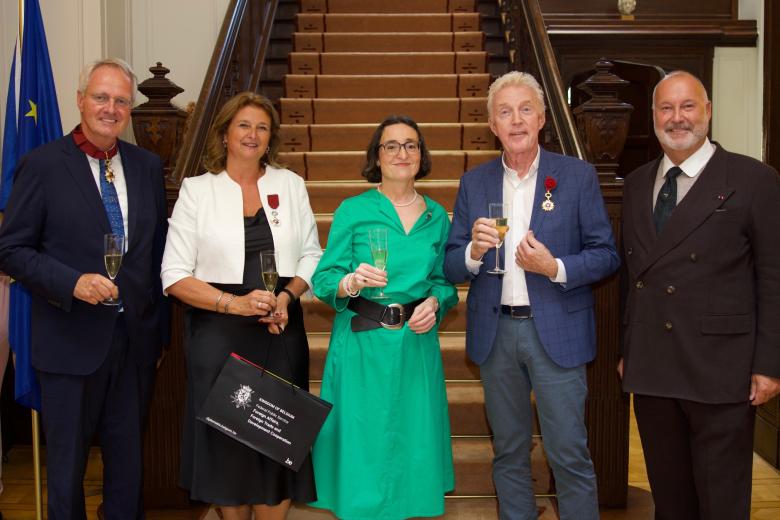UM stands firm for academic freedom and international law
The world is going through turbulent times. The horrific violence in places like Gaza and Ukraine, as well as anti-academic trends in countries such as the United States, have also sparked discussion within our university community. These discussions range from the role universities should play in global developments to how we treat one another within and around the academic community. As a university committed to active citizenship, global engagement, and international law, these issues are of the highest importance to the UM Executive Board and ones we must continue to discuss together.
Below is an update on several topics currently relevant to UM within this complex context. We will also address the ‘Ask Me Anything’ session on the afternoon of Thursday 12 June, where we look forward to engaging in dialogue with the UM community following the end of the occupation at UCM on 10 June.
Academic freedom
Recently, our rector, together with the rectors of other Dutch universities, stated in clear terms that academic freedom is under pressure and now, more than ever, requires protection. The rectors also reflect on their own institutions: “Academic freedom is not a carte blanche. (…) Freedom without responsibility undermines itself. Therefore, academic freedom is always rooted in the frameworks of the law, scientific integrity, academic standards, and mutual respect.”
In other words, academic freedom does not stand alone. It demands integrity and careful consideration of both rights and responsibilities, such as the right to protest.
Protesting vs. studying and working
The constitutional right to protest is non-negotiable. This is also true at UM, where our mission is to empower students to become active, globally engaged citizens and critical thinkers. That means also accepting that demonstrations may cause discomfort. At the same time, we must also be mindful of those who work and study in our buildings. People who may hold different opinions or who may experience disturbances, and at times even intimidation, antisemitism, Islamophobia, or other forms of discrimination. That’s why we continuously aim to seek the right balance between safeguarding education and research in a safe environment while allowing space for protest. When house rules or legal frameworks are seriously violated, we take action. This can include reporting incidents to the authorities, supporting or advising students or staff in internal complaint procedures and external legal options, or initiating legal proceedings ourselves, for example to claim compensation for damages caused by vandalism.
The occupation of the UCM building on 10 June, and the decision to bring it to an end, was, however difficult and painful, a necessary choice in our ongoing effort to strike the right balance. In the published update, we explain that the core activities of education and research were severely disrupted that day, and that the safety and wellbeing of everyone involved, including the occupiers, could no longer be sufficiently guaranteed. We will further address this in dialogue with the UM community during the Ask Me Anything session on the afternoon of Thursday 12 June.
12 March: A case of imbalance
One example of how difficult it can be to find the right balance was the early termination of a lecture by a pro-Israel speaker on 12 March 2025. We have reconstructed the events of that evening and the lead-up to it. As a result, we openly acknowledge that UM should have acted differently and more effectively, including during the preparation phase preceding the event. We aim to improve this by creating space for academic debate while better ensuring the safety of both speakers and participants. Measures include:
- Stricter selection of venues with effective access control and logistical setup
- Professional moderation for potentially sensitive events
- Rapid response in the event of intimidation, hate speech, or violence, with trained staff on-site to intervene
With these measures in place, we are immediately lifting our earlier decision to temporarily restrict events with external speakers related to the Israel/Palestine context. We do not ignore criticism that our temporary decision may have compromised academic freedom. But we also have a duty to protect the safety of everyone involved and to uphold our academic values.
UM, the violence in Gaza and elsewhere, and the Human Rights Advisory Committee
We are acutely aware of the privileged position from which we reflect on freedom and safety. This is in stark contrast to the situation in Gaza, where people face indescribable violence, insecurity, and loss of life on a daily basis. More and more experts and institutions are describing this as genocidal violence and refer to grave violations of international humanitarian law and human rights law. Also, uncertainty about the fate of Israeli hostages persists, causing unprecedented trauma for the families involved. The escalation since the massacre on 7 October 2023 has resulted in unacceptable human suffering, which continues to this day.
As a university, we are responsible for our core tasks and for how we carry them out. One thing is clear: through our education, research, and collaborations with other institutions, we do not in any way wish to contribute to human rights violations or acts of violence, whether in Gaza or elsewhere in the world. It is also the role of our experts to offer insight into the legal, historical, and societal contexts of global conflicts and to speak out firmly on these matters, guided by academic methods of research and debate. Just as it is the responsibility of national and international courts, governments, and intergovernmental organisations to contribute to the prevention and cessation of further violence.
To critically assess potentially sensitive partnerships, our Human Rights Advisory Committee has been active since April 2025. Based on its advice, we expect to reach a final decision this summer regarding partnerships in the first countries under review: Israel and Sudan. Ahead of this process, UM already decided last year to freeze existing institutional collaborations with Israeli institutions and to refrain from entering into new partnerships with Israeli partners.
As a university, we take a careful and considered approach when assessing collaborations with other universities and researchers. We believe it is important not to isolate critical scholars, whether here or elsewhere in the world, and to support colleagues affected by violence or human rights violations.
Let’s reflect, together
In the coming period, more communication will follow on these issues. And this will not be one-way traffic. The rectors of Dutch universities have announced a nationwide dialogue on academic freedom that will begin in the coming academic year, on and around every campus in the Netherlands. As they write: “If we want to protect open academic debate as a society, we must also talk with each other about the role we all play in defending that freedom.” In the coming period, there will be in-depth discussions and meetings. We invite everyone to participate. With critical feedback, concerns, and questions. That is how we keep UM open, courageous, and safe for all.
Also read
-
Green light for UM participation in unique YUFE bachelor programme
The UM can start as a degree awarding partner in the new unique bachelor programme Urban Sustainability Studies offered by YUFE (Young Universities for the Future of Europe), an alliance of ten European universities. This week, the UM received a positive outcome of the macro due diligence assessment...

-
Professor Anouk Bollen-Vandenboorn appointed Knight in the Order of the Crown
Prof. Dr Anouk Bollen-Vandenboorn, Director of the Institute for Transnational and Euregional cross border cooperation and Mobility (ITEM) at the Faculty of Law, Maastricht University, was appointed Knight in the Order of the Crown on 3 July, during a formal ceremony at the Belgian Embassy in The...

-
Study Smart gets Dutch Education Premium
Maastricht University's (UM) interfaculty educational innovation project Study Smart is one of the three winners of the Dutch Education Premium 2025. This was announced on Tuesday during the Comenius festival in The Hague.
